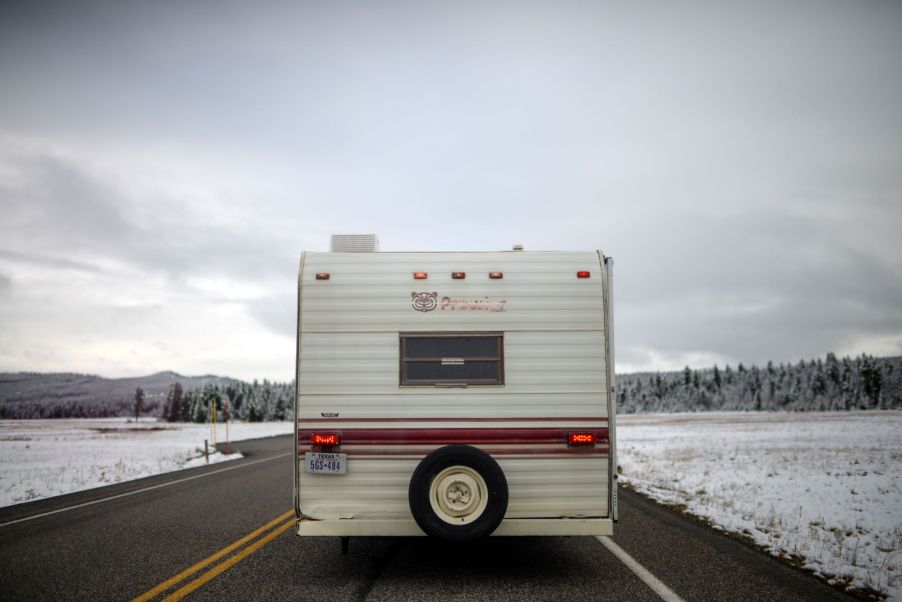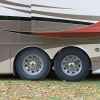
What Is the Best Insulation For RVs?
Poorly insulated RVs can ruin a trip when the weather is either too hot or too cold. At high elevations, even hot summer days are generally followed by chilly nights that can leave you shivering in your RV bed. Avoid both of these temperature extremes by making sure your RV is adequately insulated.
The right RV insulation will keep the air inside your camper at a pleasant temperature all the time. It will also help keep uncomfortably high humidity and cold breezes at bay. The key lies in choosing the right type of insulation for how and where you use your RV.
DIY camper insulation
Insulating RVs is difficult, time-consuming, and expensive. Insulation also takes up valuable space, especially in smaller campers and van conversions. However, it is possible, especially if you’re building or remodeling anyway.
Some people choose not to insulate because insulation can trap moisture and contribute to mold growth. To foil mold, you need to select the correct type of insulation, seal everything very well, and provide plenty of ventilation.
Insulating an RV is also very difficult to do unless you’re starting a conversion from scratch or remodeling a completely gutted camper. The only option for insulating a trailer with intact walls, ceiling, and floor is to remove the exterior siding. Once the insulation is in place, you’ll have to replace the siding and make sure everything is sealed up tight and waterproof.
The best types of insulation for an RV
According to RVingPlanet, the three main types of insulation used in RVs are fiberglass, rigid foam, and spray foam. Each has its pros and cons, so you should carefully consider the climates you may find yourself in before choosing one.
First, let’s look at fiberglass insulation. It’s relatively cheap, has a high R-value, and is easy to install or replace. That ease of replacement is vital because fiberglass insulation breaks down over time, is easily damaged by moisture, including humid air, and is susceptible to mold. Choose fiberglass insulation if you generally stick to using your camper in dry climates.
Rigid foam insulation is moisture resistant and lasts for a long time. The trade-off is a low to medium R-value and the difficulty of installing it. It’s best for RVers who travel all over the country through all kinds of climates. It’s a reasonably major DIY project, so if you want this kind of insulation, look for one of the rare RVs with rigid foam insulation already pre-installed.
Lastly, there is spray foam insulation. It’s inexpensive and lightweight, offering some sound dampening, and is impervious to moisture. However, it has a low R-value, and you’ll need to hire professionals or at least rent an applicator and buy protective equipment to install it. It’s best for applications where weight is an issue or in climates with moderate temps, especially where the humidity is high. Avoid it if you spend a lot of time in environments with extreme temperatures due to its low R-value.
Don’t put your RV away for the winter
Many people only use their RVs when the weather is warm. They’re missing out on some of the best camping and travel opportunities around. Think of how many choices of campsites you’ll have when most of the competition is tucked away for those long fall and winter months.
Creative winter RVing hacks will keep you cozy inside your RV, even when the snow is piling up outside. First, insulate anything that comes in contact with any liquid. That includes fresh and wastewater tanks, pipes, drains, and dump valves. Wrap any exposed pipes with heat tape, followed by foam pipe insulation. Keep plenty of propane on hand and supplement it with an electric space heater if it’s safe to do so to save on propane. You don’t want to run out in the middle of a blizzard.
Setting up camp in winter takes longer and is more tiring than during summer’s long, lazy days. Plan to stay put for longer so you aren’t breaking camp and setting it up again as often. This lets you save your time and energy for skiing, ice fishing, and other fun winter activities instead. The proper RV insulation and winter weather hacks will let you enjoy your favorite outdoor activities all year long.




